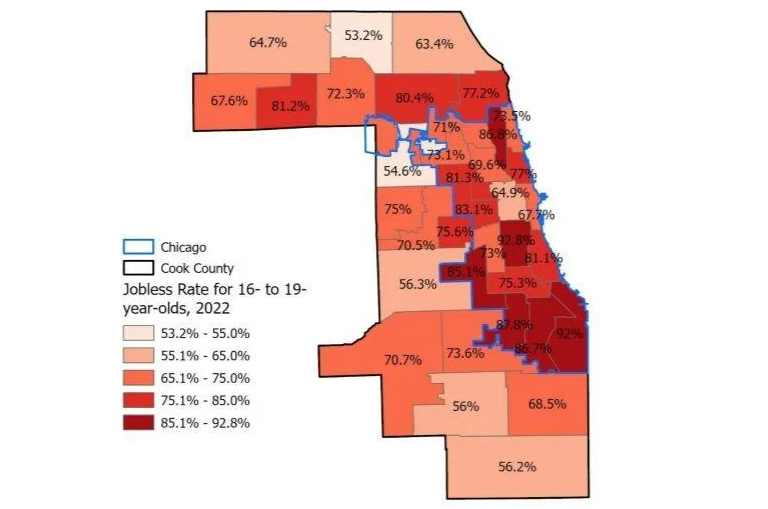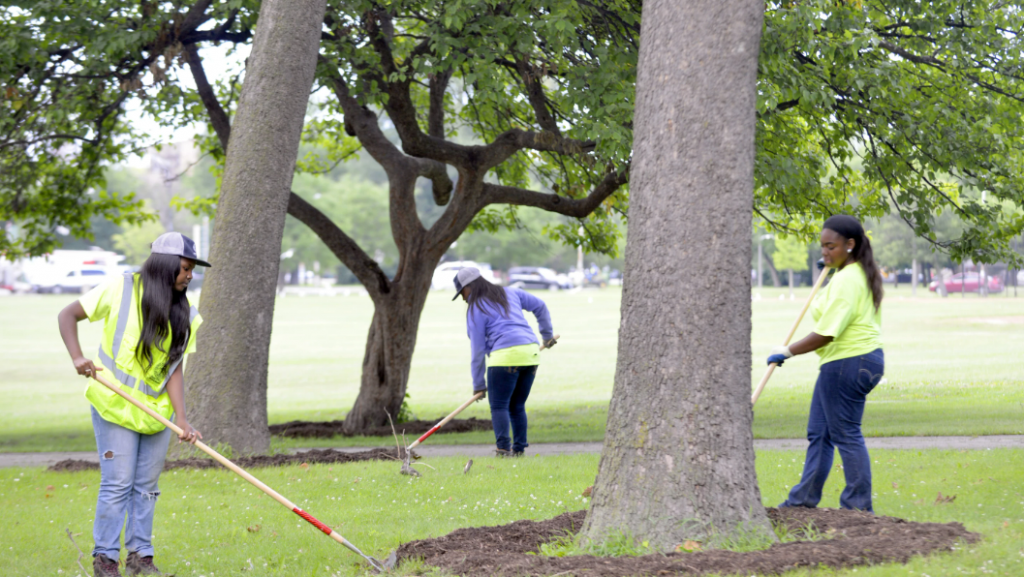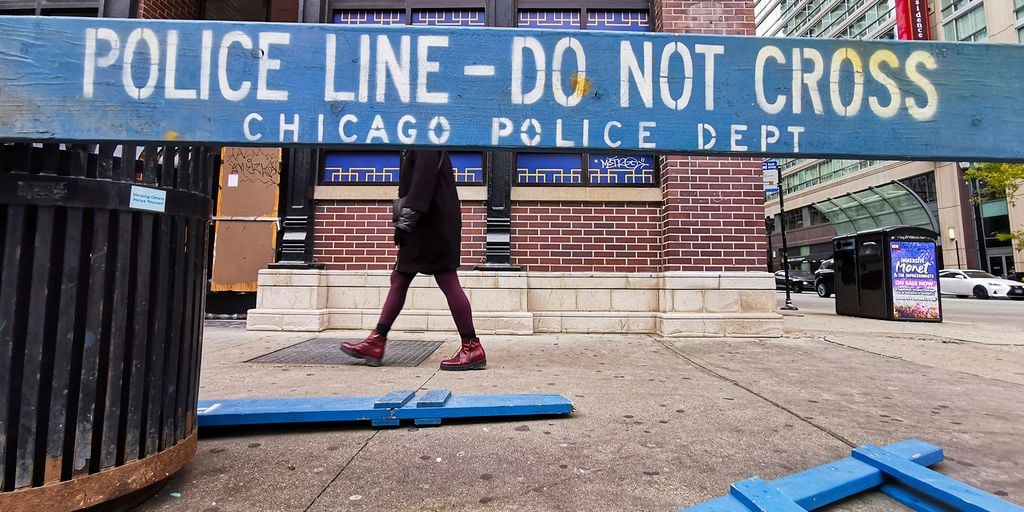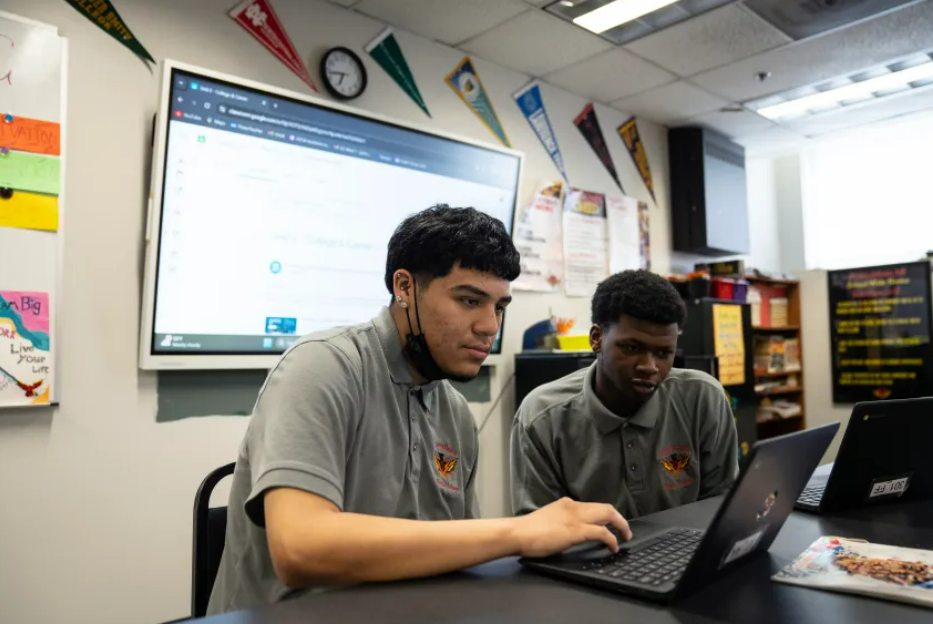Executive Summary:
In an April 2023 report from the Great Cities Institute (GCI) on youth employment after the COVID-19 recession of 2020, we found that:
-
- Recovery in employment levels were uneven amongst youth and young adults in Chicago,
- Recovery in Chicago was lagging behind Illinois and the U.S., and
- Black and Latino youth and young adults experienced uneven and in some cases no recovery towards pre-pandemic employment levels of joblessness and out-of-school and jobless rates (Wilson and Patterson 2023).
Knowing that recovery was uneven amongst racial/ethnic groups, slower in Chicago, and with an additional year of data available, we seek to answer what inequalities persist in joblessness and out-of-school and jobless rates, and if new disparities have emerged.
This data brief examines jobless rates (the percent of individuals that were unemployed and individuals not in the labor force), and out-of-school-and-jobless rates for 16- to 19- and 20- to 24 year-olds in Chicago, Illinois, and the U.S. by race/ethnicity and sex. Additionally, we examine sub-sections of Cook County with 2022 data to examine the extent to which spatial concentrations exist.
Media Coverage:
Authors:
Matthew D. Wilson, Ph.D.
Associate Director of Economic & Workforce Development, UIC Great Cities Institute.
Samantha Sepulveda
Research Assistant, UIC Great Cities Institute.
Read and Download the Full Report Here.









